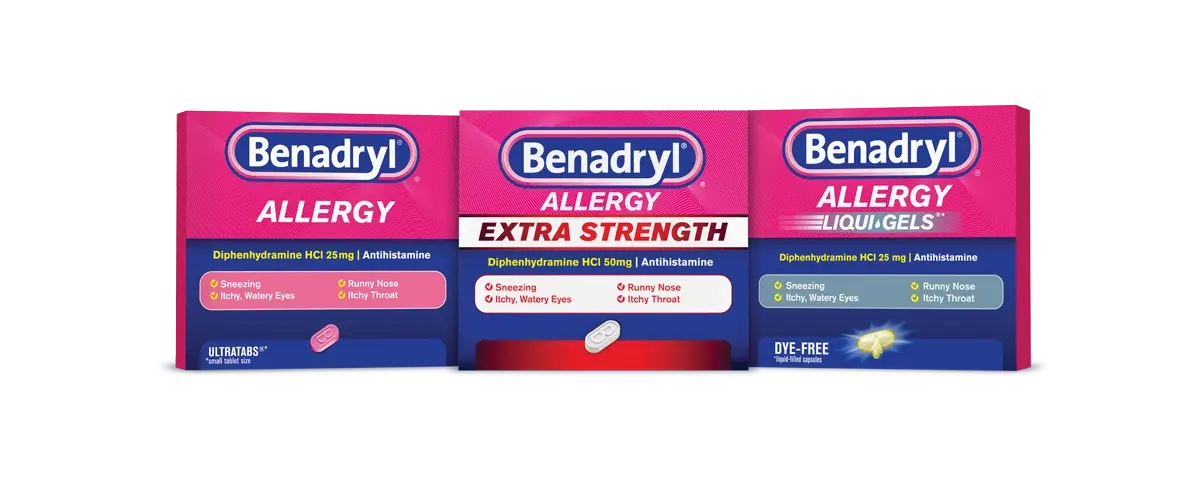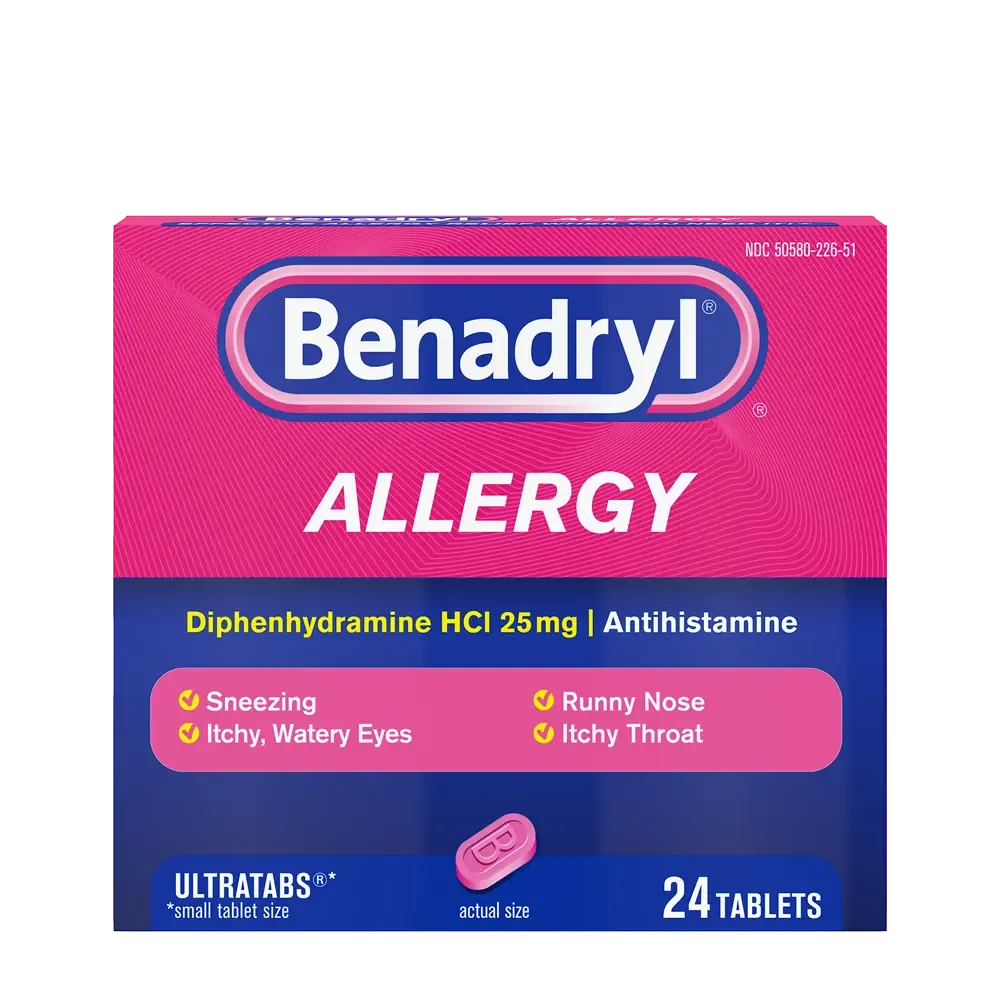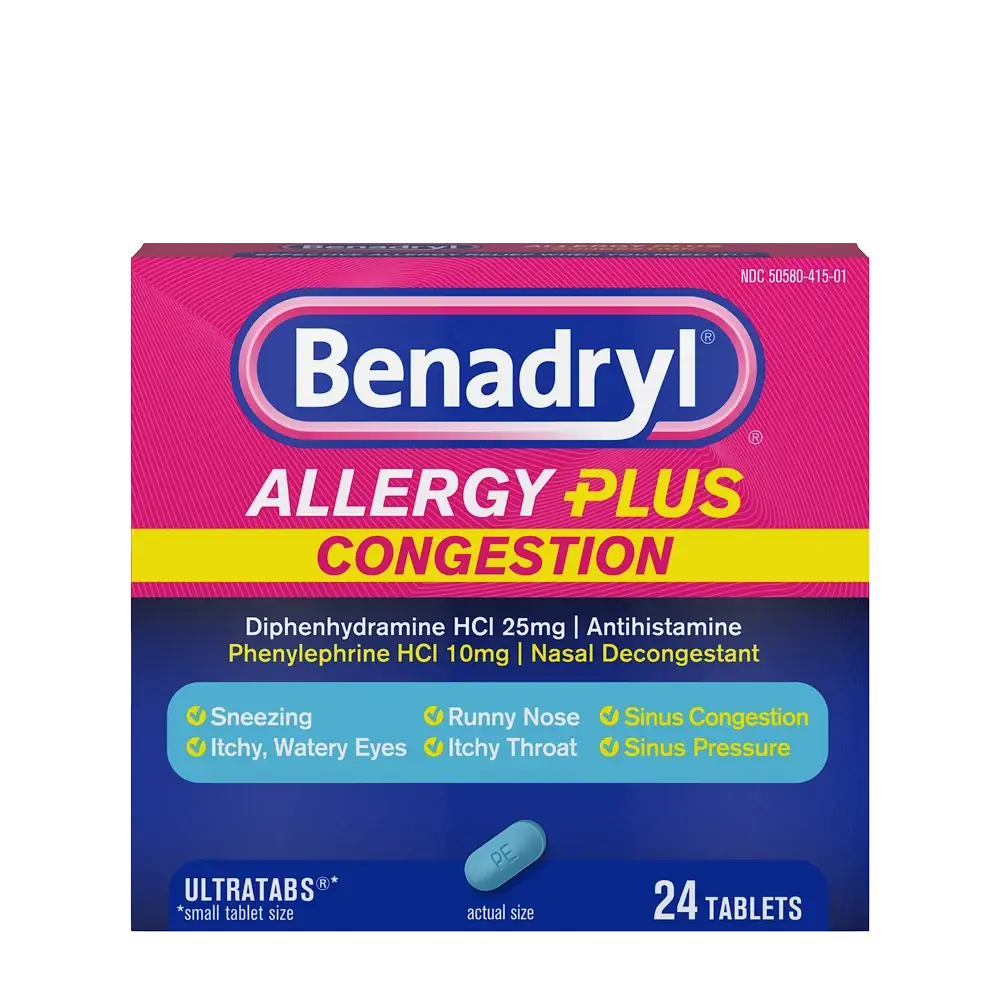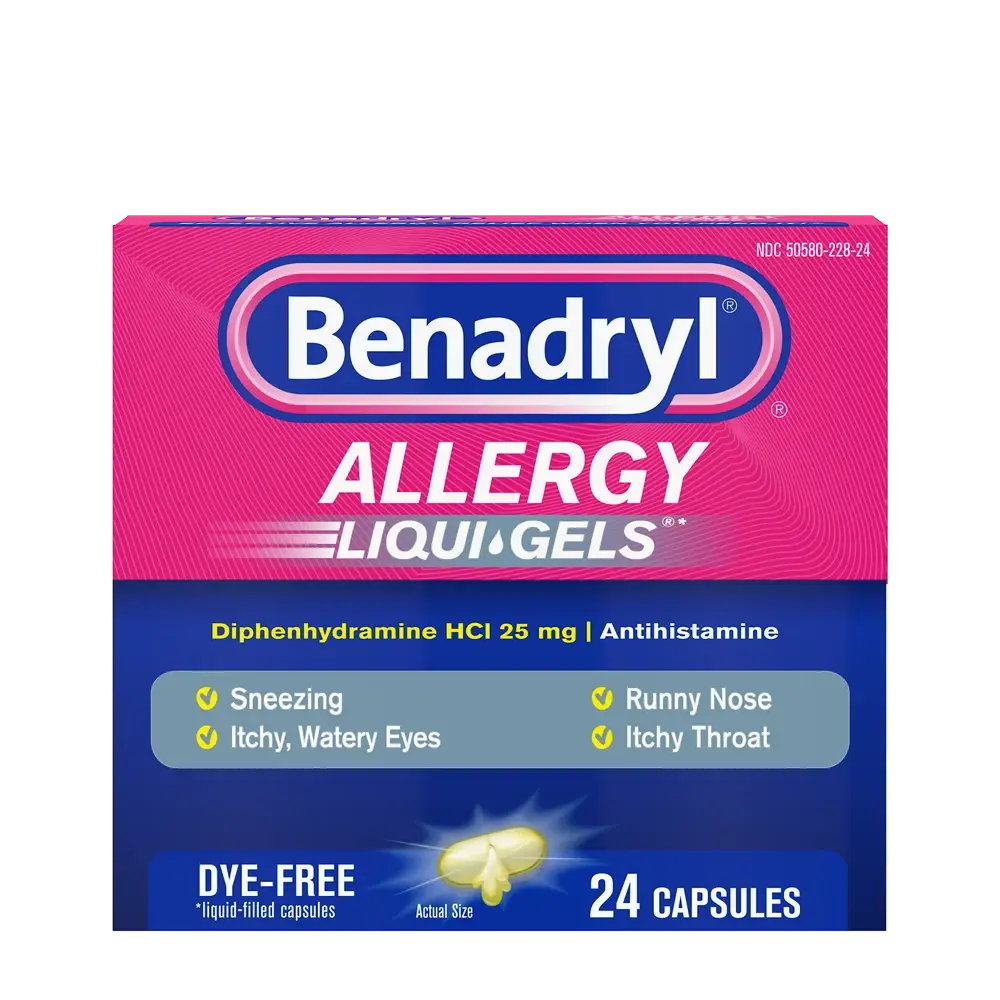Benadryl Vs. Claritin & Other OTC Allergy Medicines
With so many allergy medications on the market, it can be difficult to choose which is best for you. We’ve prepared a guide on how BENADRYL® compares to other options, like Claritin® and Zyrtec®, so you can learn the differences.
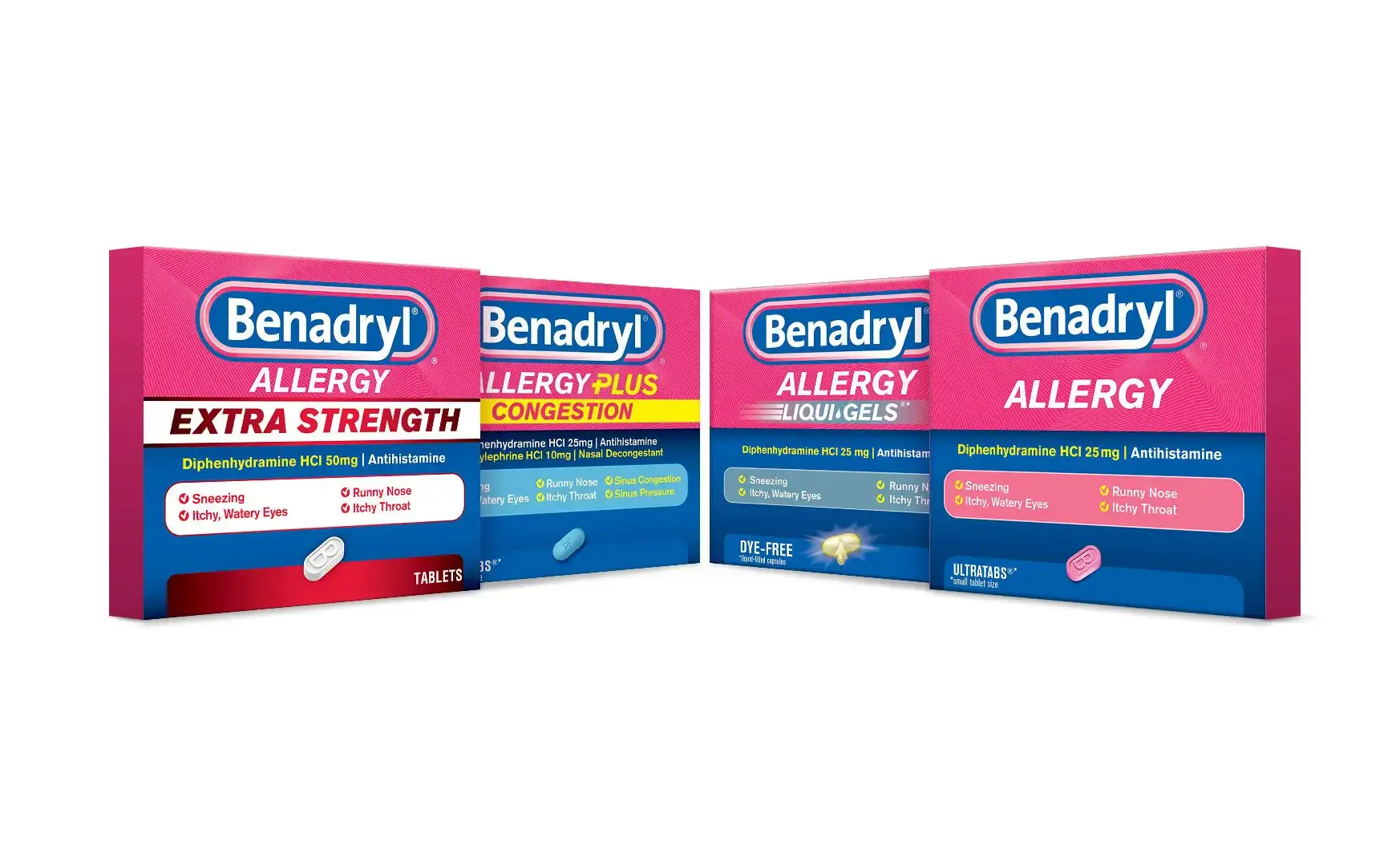
How Antihistamine Relieves Allergies
Allergies are your body’s natural response to allergens. When you have an allergic reaction to a substance—like pollen or pet dander—your body’s immune system perceives it as a danger and overreacts. This causes the release of histamine, a special chemical that helps the body function normally.1
However, during an allergic reaction, extra histamine released from immune cells is also responsible for all those unwanted side effects like runny nose, watery eyes, and sneezing. This is because histamine:2
Stimulates mucus secretion, leading to a runny or stuffy nose
Triggers itching sensations on the skin
Causes leaky blood vessels that lead to watery eyes
Constricts lung muscles, making breathing difficult
Antihistamines are medications designed to block the effects of histamine in the body, alleviating these pesky symptoms. There are several different types of antihistamines available on the market, each with slightly different benefits.
Antihistamines can be broken down into two major groups: H-1 receptor blockers and H-2 receptor blockers. H-1 blockers are mainly used to treat common allergy symptoms, while H-2 blockers are used for gastrointestinal conditions.2
You may be wondering, is BENADRYL® an antihistamine? Yes, it is! In addition to oral BENADRYL® for adults & children, BENADRYL® also comes in the form of a Topical Analgesic/Skin Protectant.
To compare the differences between BENADRYL® and other allergy medicines and determine which BENADRYL® is right for you, you can review the chart below.
Compare Benadryl to Other Allergy Medicines
When it comes to choosing OTC allergy meds, there are a lot of options out there. Use the handy chart below to compare Xyzal vs. BENADRYL®, Claritin vs BENADRYL®, Zyrtec vs. BENADRYL®, Allegra vs. BENADRYL®, and more.
While each medication uses a different active ingredient, most are indicated for treating similar allergy symptoms but there are some important differences to be aware of.
Benefits of Benadryl for Allergy and Cold Relief
Now that you’ve had a chance to compare options, you may have decided BENADRYL® is the right medication to alleviate your allergy or cold symptoms. At the BENADRYL® Relief Center, you’ll find a product for almost any case—whether it’s simply allergies, or congestion and sinus pressure as well.
BENADRYL® also offers more products than other OTC allergy meds, including topical creams, gels, and sticks to get rid of that itch on your skin. These can be used for treating rashes or hives associated with allergies. For children, there are syrups and chewable tablets to help treat that runny or stuffy nose.
No matter the allergy symptom, BENADRYL® has got you covered.
References
Cleveland Clinic. Antihistamines. July 13, 2020. Accessed from: https://my.clevelandclinic.org/health/drugs/21223-antihistamines
MedlinePlus. Histamine: The Stuff Allergies are Made of. September 8, 2017. Accessed from: https://medlineplus.gov/medlineplus-videos/histamine-the-stuff-allergies-are-made-of/
Cleveland Clinic. Loratadine capsules or tablets. Accessed from: https://my.clevelandclinic.org/health/drugs/18985-loratadine-tablets
Cleveland Clinic. Fexofenadine capsules or tablets. Accessed from: https://my.clevelandclinic.org/health/drugs/20104-fexofenadine-capsules-or-tablets
Cleveland Clinic, Cetirizine tablets. Accessed from: https://my.clevelandclinic.org/health/drugs/19298-cetirizine-tablets
Cleveland Clinic. Diphenhydramine capsules or tablets. Accessed from: https://my.clevelandclinic.org/health/drugs/19101-diphenhydramine-capsules-or-tablets
Cleveland Clinic. Levocetirizine Oral Tablets. Accessed from: https://my.clevelandclinic.org/health/drugs/19735-levocetirizine-oral-tablets
Bought by more households than any other OTC Allergy brand.
Do not use more than one diphenhydramine product at the same time. Use products only as directed.
